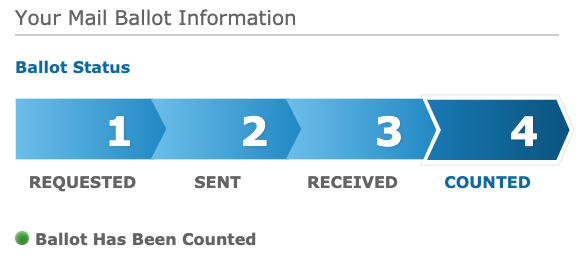
Nazism
Nazi leader says Donald Trump will be a "real opportunity" for white nationalists http://bos.gl/NpHXCSl
What about Capitalism?
Capitalism can make a society rich and keep it free, but don't ask to make it happy as well
Growing at an annual rate of 3.2% per head since 2000, the world economy is over half way towards notching up its best decade ever. If it keeps going at this clip, it will beat both the supposedly idyllic 1950s and the 1960s.
Just say no to the fifth digit; the little finger or tiny toe. Our modern world demands digital democracy. The days of intimidation, mob rule and total control must be left behind. Trust me, I have lived under a dictatorship, communism but will always and forever vote for a democratic way of life.
The isms are a distinctive philosophy, typically a political ideology or a movement. "of all the isms, Totalitarianism, Communism and Fascism are the most repressive.
Facebook and GOOGLE are being blocked, Amazon can't see the forest for the bamboo trees. Although this is an American idiomatic expression, which describes being too involved in the details of a problem to look at the situation as a whole. This continues to apply, but not too well in many totalitarian regimes.
How much proof do you need to see that Communism and other forms of mass control are literally, as well as figuratively and other wisely are another world apart from reality? Are the individual dreams of The People's Republic of China, Russia, and so many others dead? Believe it or not, there are reportedly ten global tyrannies blocking social media.
Bangladesh: The posting of a cartoon saw the networking site shut down across Bangladesh in 2010. Satirical images of the prophet Muhammad, along with some of the country’s leaders, saw one man arrested. Since then the government has directed a surveillance campaign at Facebook, and other social networking sites, looking for blasphemous posts.
Cuba: Social media isn’t officially banned in Cuba but it sure is difficult to access it. Politicians, some journalists, and medical students can legally access the web from their homes. For everyone else, the only way to connect to the online world legally is via internet cafes.
Egypt: After citizens took to the streets in 2011 in an attempt to overthrow the regime of Egyptian President Hosni Mubarak the government cut off access to a range of social media sites. As well as preventing protestors from using it to foment unrest, many websites registered in Egypt could no longer be accessed by the outside world. Twitter, YouTube, Hotmail, Google, and a “proxy service” – which would have allowed Egyptians to get around the enforced restrictions- seemed to be blocked from inside the country.
Iran: Political leaders are hanging dissidents who have taken to social media- despite both Facebook and Twitter officially being extraordinarily difficult to access in the country. President Hassan Rouhani has his own Twitter account, although apparently he doesn’t write his own tweets, but access to these accounts is via a proxy server.
North Korea: the most secretive country in the world little is known about internet access in Kim Jong-un’s nation. Although a new 3G network is available to foreign visitors, a limited number of academics have access to the internet but in fear of the outside world many chose not to use it. Don’t expect to see Kim Jong-un’s personal Facebook page anytime soon.
Pakistan: Another case of posting cartoons online, another case of a government banning Facebook. This time, Pakistan blocked access to the website in 2010 after a Facebook page, created to promote a global online competition to submit drawings of the prophet Muhammad, was brought to their attention. Any depiction of the prophet is proscribed under certain interpretations of Islam. Pakistan vowed to continue blocking individual pages that seemed to contain blasphemous content.
PRC: The Great Firewall of China is a censorship and surveillance system of the Chinese government. Social media sites were blocked following the Ürümqi riots after it was perceived that Xinjiang activists used them to communicate, plot and plan. Since then, China’s ruling Communist Party aggressively controls the internet, regularly deleting posts and blocking access to websites it does not like.
Syria: The Arab Spring in a different manner. Facebook had been blocked in the country since 2007 as part of a crackdown on political activism, as the government feared Israeli infiltration of Syrian social networking sites. In an unprecedented move in 2011, President Bashar al-Assad lifted the five-year ban in an apparent attempt to prevent unrest on his own soil following the discontent in Egypt and Tunisia.
Syrians are still able to easily access Facebook and other social networking sites using proxy servers.
Vietnam: Facebook users have reported an inability to access the website following weeks of intermittent access. Reports suggest technicians had been ordered by the government to block the social networking site, with a supposedly official decree leaked on the internet. The government denied deliberately blocking Facebook although access to the site today is still hit-and-miss in the country. The government prohibits users from posting links to news stories or other news related websites on the social media site.
World leaders could consider looking at issues one at a time, and otherwise, might not realize that a branch of separate trees goes together to make a forest of free nations. The whole world is watching.
Policymakers should study these failed forms of government, also. No other practice will reveal more about the advantages and drawbacks of winner-takes-all monetary policies and international markets.
How Does The Real Donald J Trump Betray American Political Tradition? http://bit.ly/2asBp4R